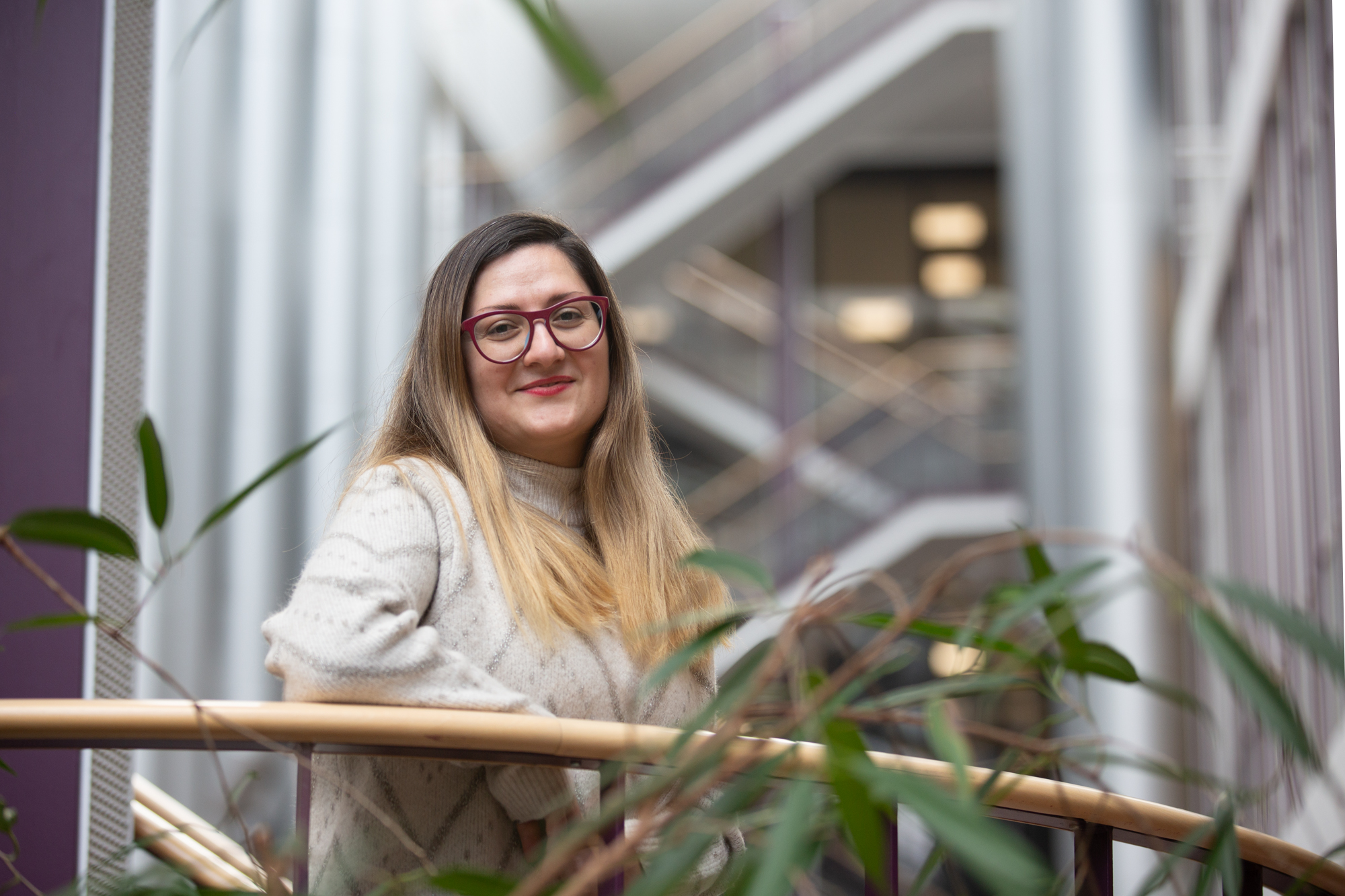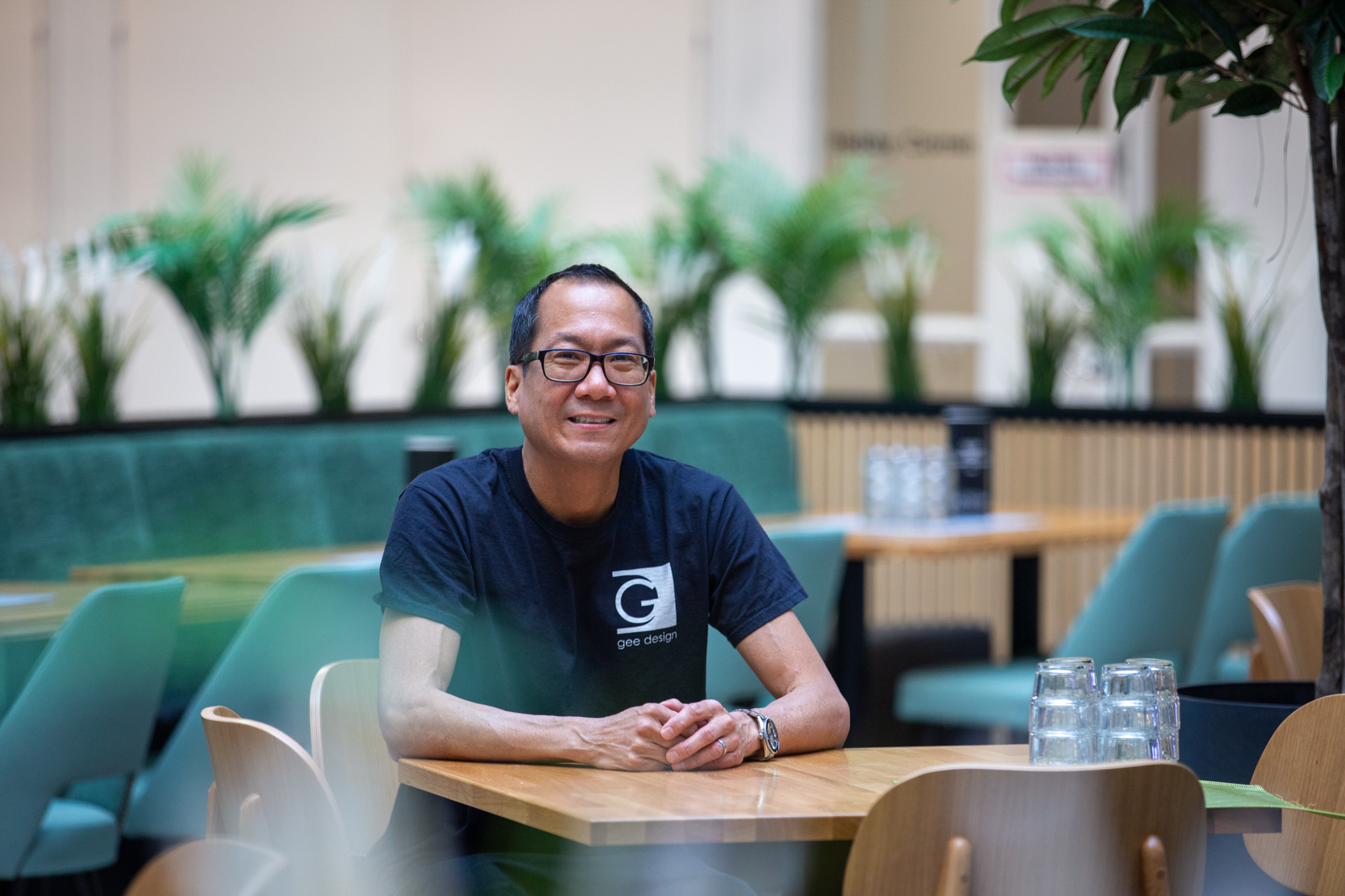
For foreign entrepreneurs starting a business in Finland is daunting due to unfamiliar regulations and tax obligations, says Ani Grigoryan. Her role is to demystify these processes.
Bridging Cultural Gaps – Yrityssalo Offers Assistance for Foreign Entrepreneurs
In an increasingly globalized world, navigating cultural differences and language barriers can be a daunting task for foreign entrepreneurs looking to establish their businesses in Finland. Yrityssalo stands at the forefront of this challenge, offering tailored support for foreigners such as Danny Gee.
Language is one of the biggest hurdles for foreign entrepreneurs in Finland. In Yrityssalo we are dedicated to help foreign entrepreneurs successfully navigate the local business environment.
For example, Ani Grigoryan, Yrityssalo’s entrepreneurship coach, provides a unique set of services tailored to the needs of these entrepreneurs, many of whom are eager to start businesses but often face linguistic and cultural challenges.
Grigoryan, fluent in English, Russian, and Finnish, offers consultations and workshops in multiple languages to help clients understand Finnish business registration processes, required permits, and financial regulations.
She notes that while most of her clients speak English or Russian, many are from diverse backgrounds with languages like Arabic or Turkish, which often complicates communication.
Grigoryan highlights an example where attendees at a workshop used Google Translate to overcome language differences.
“It really underscored the reality that there isn’t always a common language among participants. It’s rather a mix of languages, so we find creative solutions to make communication work,” she explains.
Tackling Business Start-Up Fears
For many foreign entrepreneurs, the prospect of starting a business in Finland is daunting due to unfamiliar regulations and tax obligations. According to Grigoryan, some clients are hesitant to proceed as they fear legal issues or getting fined.
Her role is to demystify these processes, walking clients through the steps of company registration, budgeting, and taxation.
“They’re often scared about what they don’t know,” she says, “and limited resources in their native languages add to their concerns.”
Grigoryan’s approach is to create a supportive environment, providing resources that guide clients through early decision-making stages, such as choosing between light entrepreneurship and limited liability company structures.
Creating an Inclusive Support System
In addition Grigoryan has initiated networking events and workshops in Salo and nearby areas, with some sessions conducted in Russian to meet the needs of Ukrainian and other Russian-speaking immigrants.
“The success of these events underscores the demand for services in native languages. We had a strong turnout and engagement during a recent networking event in Somero, for example,” she states.
Grigoryan’s support also extends beyond initial consultations. She maintains an ongoing relationship with her clients, offering guidance and resources as they progress through their entrepreneurial journeys.
“My support doesn’t end after registration,” she says. “It’s a continuous process, and clients can always reach out for advice.”

Danny Gee has 30 years of experience in the fashion industry as a designer. According to him, people in fashion dream of moving into furniture design, but he never imagined making furniture himself.
Danny Gee’s Journey From the Fashion Industry to Finnish Furniture Crafting
US-born Danny Gee, now a skilled furniture craftsman, left a decades-long career in fashion, moved to Finland with his family, and started a business in Salo. Despite facing cultural and bureaucratic hurdles, Danny’s dedication and community support have helped him build a promising future as an entrepreneur.
The journey to becoming an entrepreneur in Finland can sometimes take an unusual route. Danny Gee, an American-native who had spent over 30 years in the fashion industry as designer, felt the need for a change. Along with his Finnish wife and his daughter reaching school age he decided to move to Salo, Finland, in 2022 to seek a better quality of life for their family.
It was Danny’s Finnish language teacher at a local adult education center who encouraged him to explore business studies. From there, he enrolled in a business-focused language course and, ultimately, furniture making classes at a vocational school.
“Many people in fashion dream of moving into furniture design, but I never imagined I’d start making furniture myself. It’s very fulfilling to see your own designs become real, tangible products,” Danny says.
His business idea came from a simple need he observed: a demand for rotating trays, known as “lazy susans”, which are uncommon in Finland. This led him to start crafting furniture pieces under a company, Gee Design.
“In Finland, I went into business on my own, without planning and without market research. Basically contrary to what Ani at Yrityssalo urges,” he laughs.
Navigating Finnish Bureaucracy
On his journey to entrepreneurship in Finland, Danny has not been able to avoid the cultural differences and challenges involved. For instance, he points out that Finnish consumers tend to put functionality before design, which is not so common elsewhere.
“In Finland, furniture is traditionally either built at home or purchased from IKEA. Design isn’t as valued,” he remarks, adding that his style, mid-century modern with Japanese-inspired lines, caters to a niche audience.
Navigating Finnish bureaucracy has also posed some challenges, particularly for foreign entrepreneurs.
“In the U.S. credit is more accessible. Here, it can take months for a newcomer to secure something as simple as a credit card for business purposes. Also while labor immigration is encouraged in Finland, there seems to be less enthusiasm for fostering immigrant entrepreneurship.”
Valuable Insights And Encouragement Through Yrityssalo
While there is room for improvement in Finnish business culture, Danny has found strong support in Salo’s local business community, where entrepreneurs frequently collaborate and help each other succeed.
Alongside his wife Erja, who operates a wellness business called Erja Gee in Salo, Danny has gained valuable insights and encouragement through Yrityssalo’s events and one-on-one guidance. Both have appreciated the tailored support and local networks, which have played a key role in their journey as entrepreneurs in Finland.
“The diversity in these gatherings is inspiring. One suggestion from a guest speaker was to expand marketing beyond Salo and target niche customers at local marinas, which I plan to do. Salo is a small place, so visibility is key,” Danny says.
No More “Small Town Thinking”
Now looking ahead, Danny’s goal is to build a stable, growing company with a loyal customer base. He envisions his company as a firmly Finnish brand. As a symbol of this, the company recently received the Finnish Key Flag.
In addition Danny believes that Salo holds tremendous potential as a business hub, one that banks and investors should recognize and prioritize. Provided that “small town thinking” is put aside.
“Take local businesses for example. Instead of worrying about parking spaces, shouldn’t we first focus on attracting more customers? There are many empty storefronts in town, and those could be an opportunity to encourage and support entrepreneurs. ” he suggests.

Article published 10/2024


